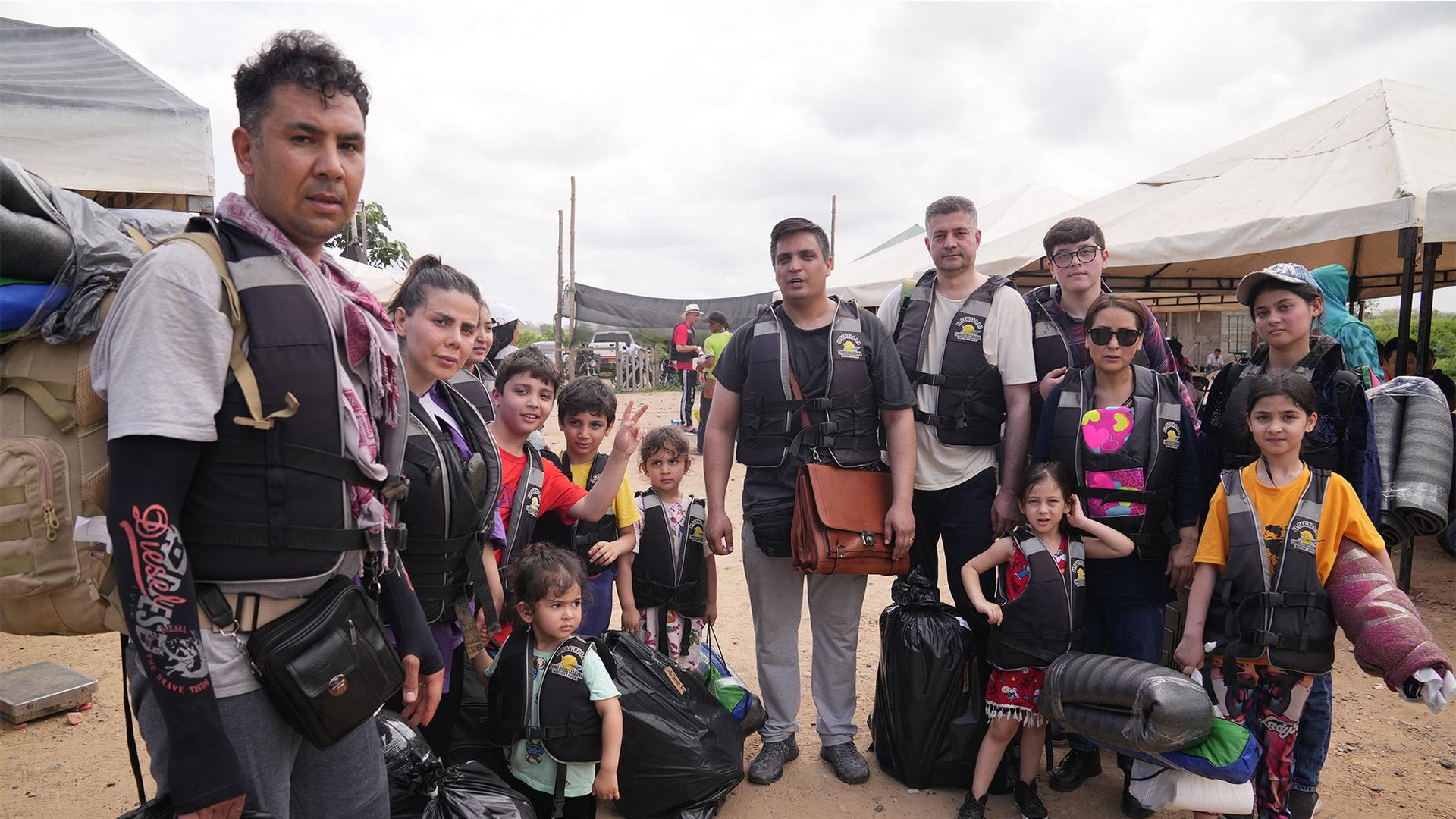Abdul Bais hung a leather briefcase over his shoulder, as he got ready to board a speedboat in Necocli, a town near Colombia’s border with Panama. It stood out among the other migrants around him, who mostly carried worn-out backpacks.
Inside the neatly arranged briefcase, he kept diplomatic passports and letters that showed he came from Afghanistan, and had worked as a diplomat for the government that was removed by the Taliban in 2021.
Bais hoped that the documents could help him to show immigration officers in the United States that he was running away from the Taliban regime, had a credible fear of returning to his country, and could qualify for asylum.
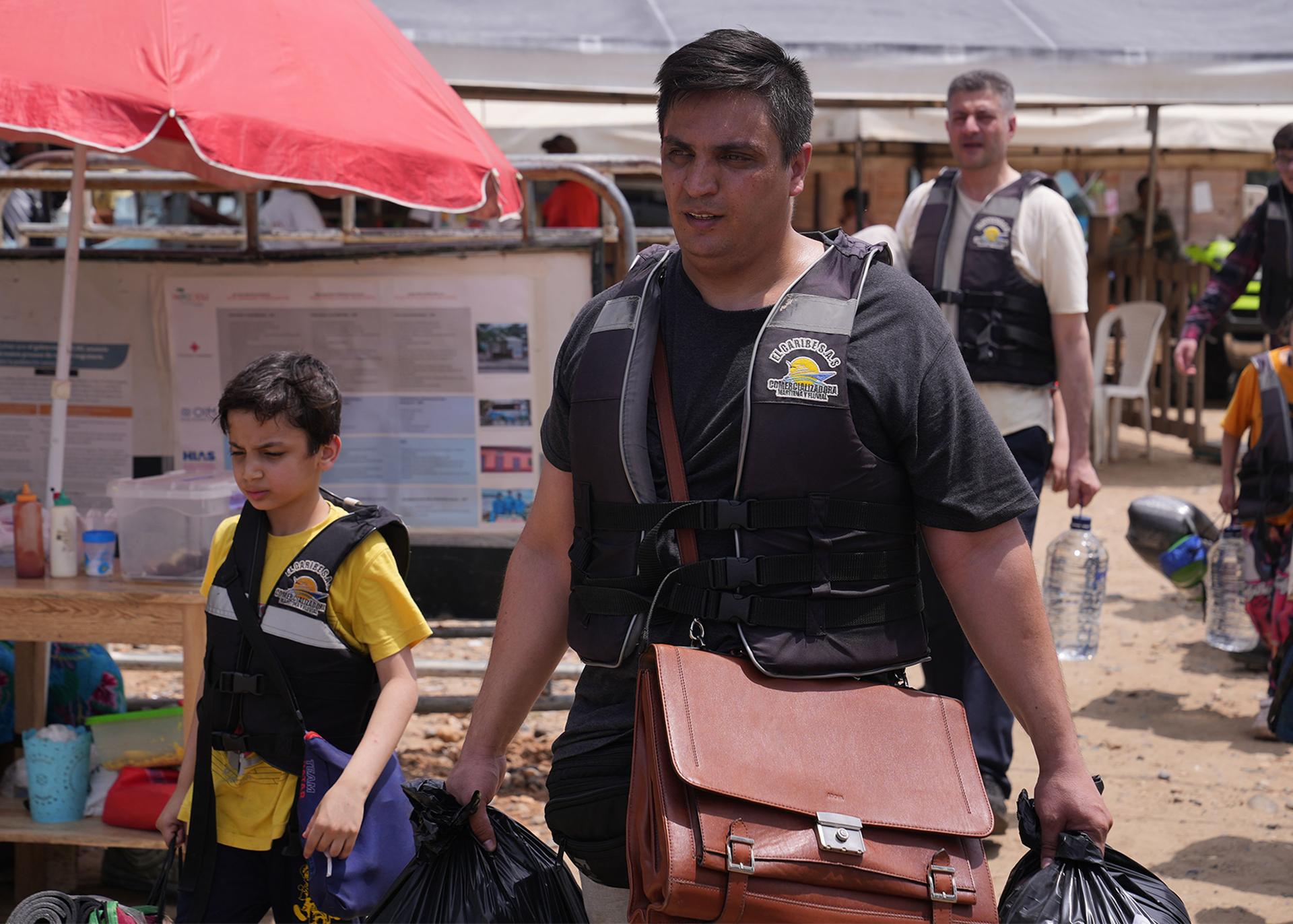
But to get to the southern border, he still had to cross all of Central America and Mexico, and before that, trek through the Darien Gap — a dense and roadless swath of jungle that stands between Colombia and Panama.
“In this world, no one has helped us,” said Bais, who traveled with his wife, three children and two other Afghan families fleeing the Taliban regime.
None of them had ever been in a rainforest before, or gone on a trek that can last several days. But, Bais said, they had run out of options.
“We are trying our best to reach somewhere that is safe, especially for our families.”
“We are trying our best to reach somewhere that is safe, especially for our families.”
Thousands of people from South America, Africa and Asia are making their way to the US border, following the expiration of Title 42, a public health policy that was used to block hundreds of thousands of asylum requests during the pandemic.
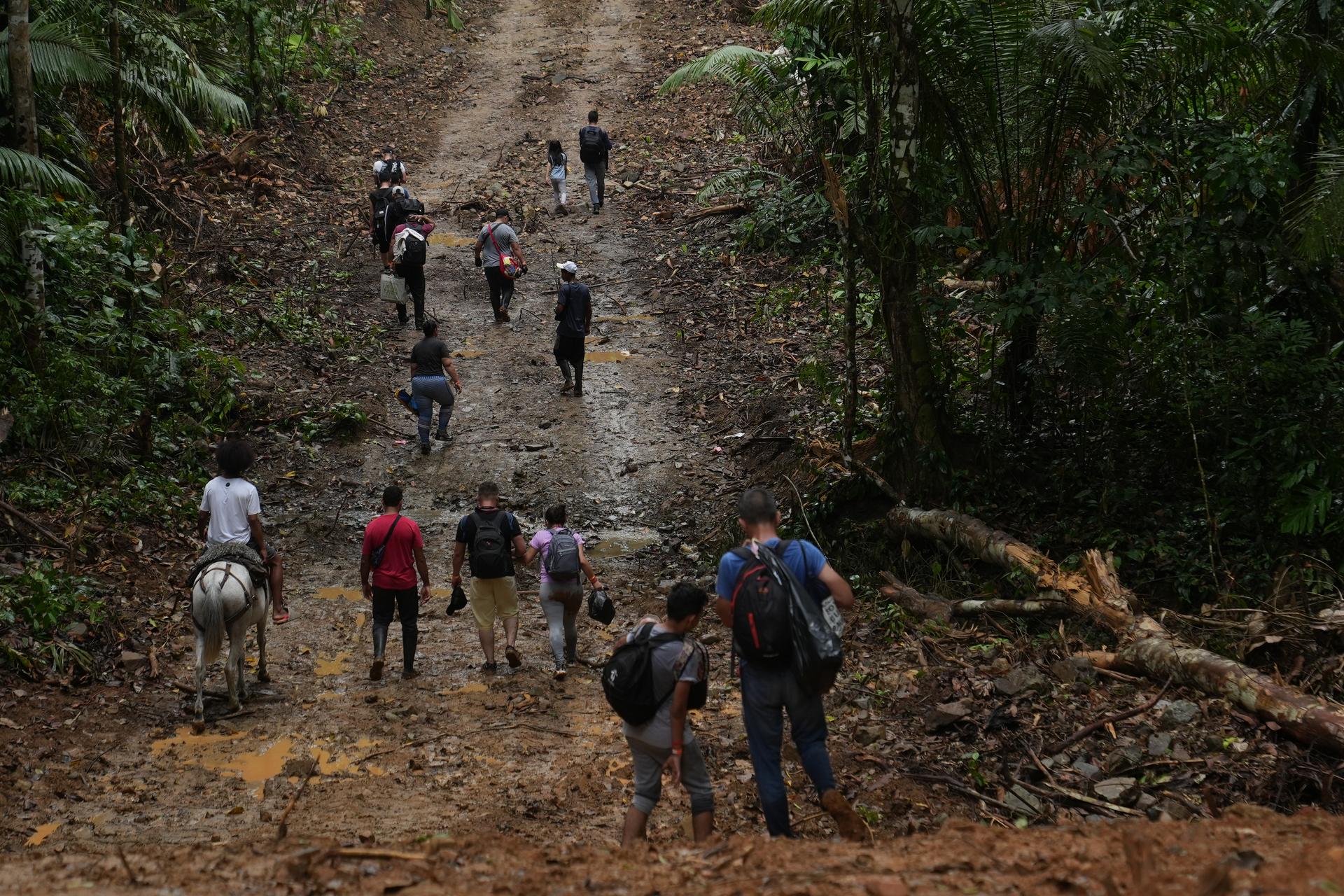
The journey across countries like Colombia, Panama and Mexico is difficult for Afghans, especially because they don’t speak Spanish and are unfamiliar with local customs.
Many of them saved up thousands of dollars to make the trip — having been doctors, NGO workers, politicians or media workers back home.
But their connections and relatively high income levels have now also turned them into targets for criminal groups in Latin America, according to Rafael Velasquez, the Mexico country director for the International Rescue Committee.
“We know of at least a dozen cases of Afghan people being detained by organized crime [in Mexico] and money being asked for ransom,” he said. “Unfortunately, their profile has become of interest for organized crime.”
He added that Afghans are also targeted by corrupt police officers, who seek bribes to let them continue on their journeys.
Stripped of diplomatic status
Bais worked for Afghanistan’s Embassy in Iran in 2021 when the Taliban came into power, and it wasn’t possible for him to return to the capital, Kabul.
So, along with most of the Embassy staff, he stayed in Iran and continued to work there, representing Afghanistan’s toppled democratic government.
But in February, Iran handed the Afghan Embassy in Tehran over to the Taliban regime. Bais was stripped of his diplomatic status, and his visa was canceled, even though it was still supposed to be valid for several more months.
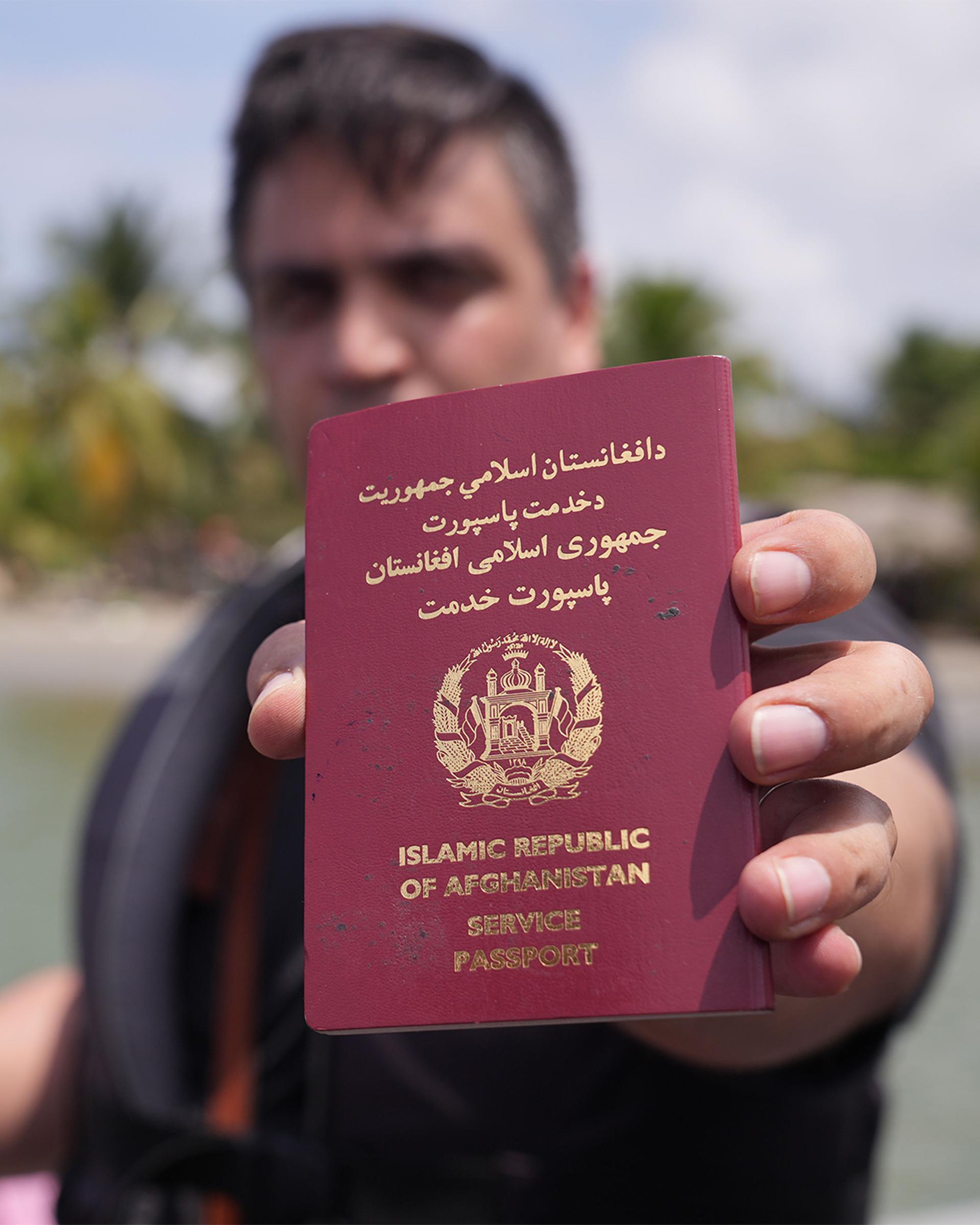
With little clarity of where he could go next, Bais sought help at numerous embassies, and was able to secure a humanitarian visa to fly to Brazil.
But after getting there he decided to reach the United States, where he has relatives.
“In Brazil there was no motivation” he said. “All we could do there was sleep at a shelter and eat.”
Since the beginning of last year, Brazil has granted humanitarian visas to 9,000 refugees from Afghanistan who were stuck in Iran and other countries.
Afghans who arrive in the country on humanitarian visas can apply for work permits, social security numbers and residency. But it’s a lengthy process, and many struggle with language barriers and red tape, said Miguel Couy, a volunteer for the Frente Afega, an organization that helps Afghans arriving at Sao Paulo’s airport. He said that the vast majority of Afghans that his group has helped have decided to head to the United States after staying in Brazil for a few weeks.
“These are people that were linked to US affairs in Afghanistan,” Couy said. “And they have the conception that in America, they will rebuild their life more easily and quicker, because the US has more jobs and the jobs pay more.”
Crossing the Darien Gap
After arriving at Sao Paulo’s airport in March, Bais and his family made their way to Necocli the following month, where they started to make plans to cross the Darien Gap.
“We have rented horses,” Bais explained as he stood on the pier in Necocli. “They will carry our children and luggage while the rest of us walk.”
Bais paid smugglers $1,000 to lead his family across the Darien Gap on a boat, horses and on foot, until they reached a migrant camp in Panama where buses were available to continue across Central America.
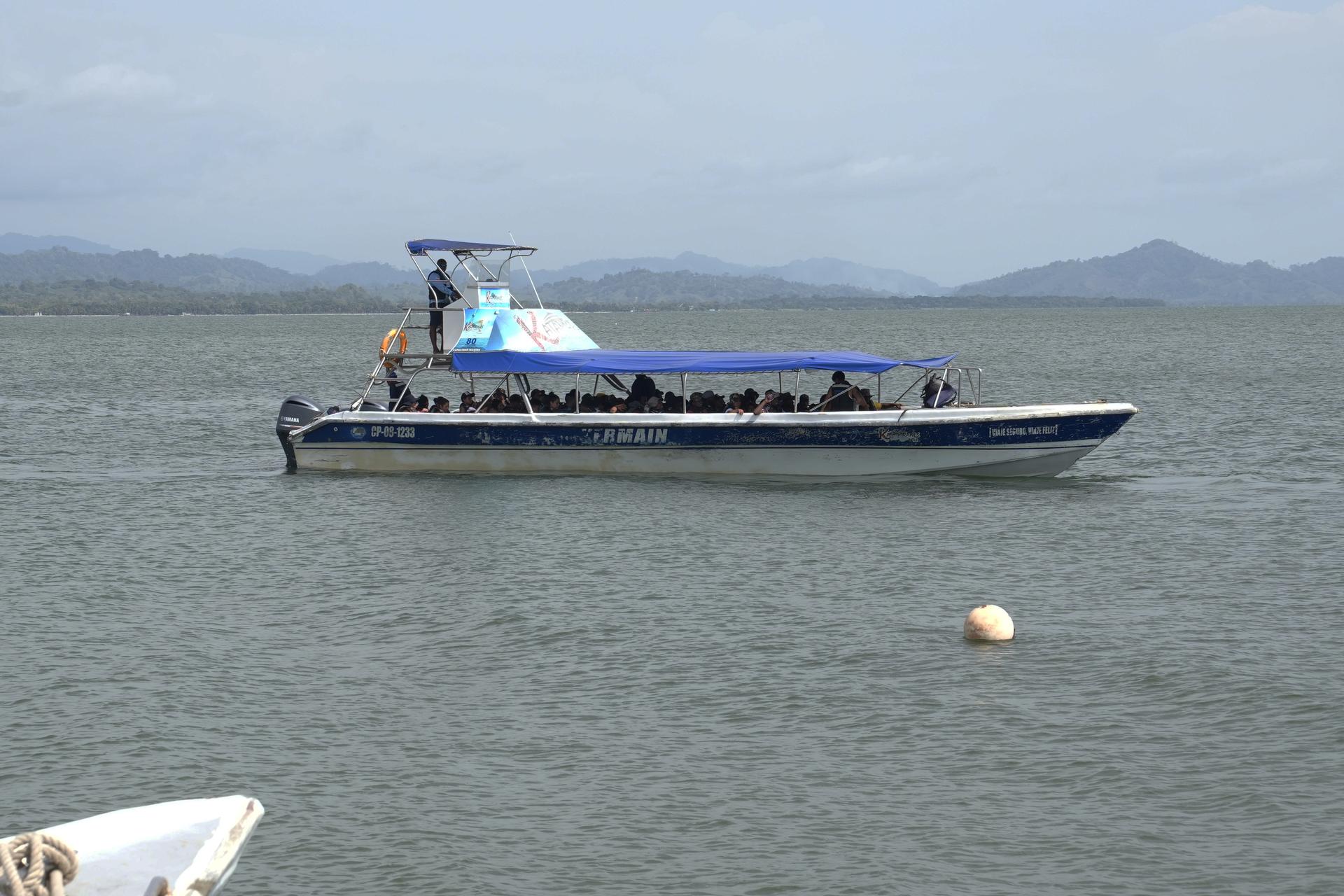
He’s not the only Afghan undertaking this dangerous route.
According to Panama’s immigration authority, more than 3,000 refugees from Afghanistan have crossed the Darien jungle since the Taliban takeover in August 2021, trying to reach the United States.
But it’s a journey that is costly and is fraught with risks.
When Bais and his family arrived in Guatemala, the group was stopped by police, who took them to a station and said they couldn’t continue their journey without proper documentation.
Bais said the police officers took three cellphones from them and more than $1,000 in cash before allowing them to continue.
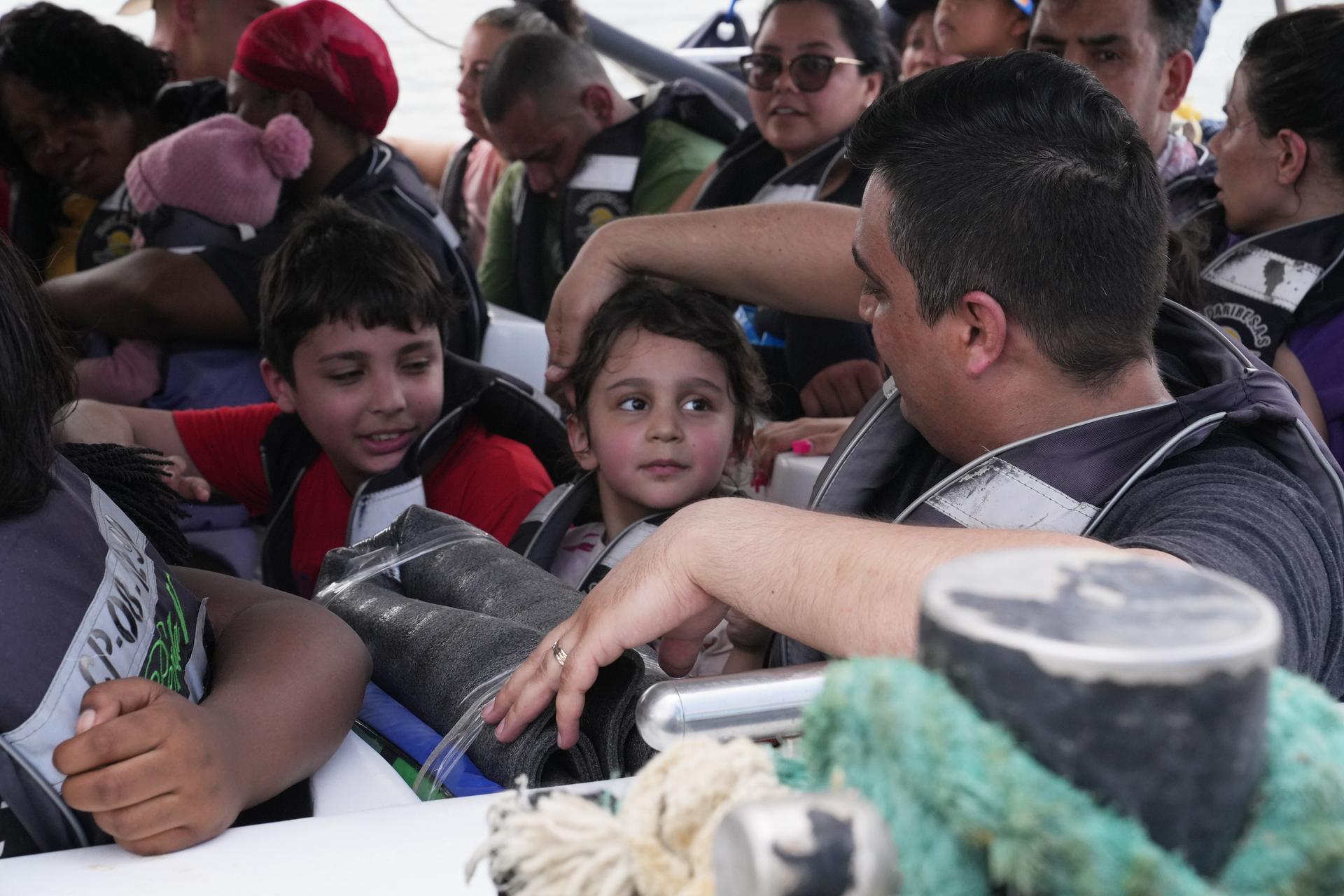
He then had to pay a smuggler to get a letter from Mexican immigration officials that would enable the group to reach the US border. Now the three Afghan families are in Mexico City, where they’re planning to catch a flight to Tijuana.
The journey has been costly and dangerous, but Bais said he will not desist from reaching the US where his family plans to turn themselves in to border patrol agents and test their luck with the new immigration policies.
“We don’t have any second option,” he said in a recent phone call. He added that his family has long passed the point of no return.
Related: ‘I survived a green hell’: More Venezuelans are crossing the dangerous Darién Gap
